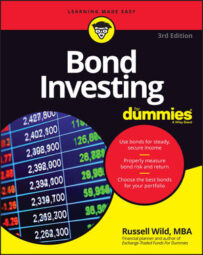There may be a few instances where precision in payment isn’t your main motivation to buy an individual bond rather than tap into a bond fund. If any of the following scenarios apply to you, individual issues may make sense:
You meet a bond broker extraordinaire. If you find a bond broker who is so talented in the ways of bond trading that she can do for you what a bond fund manager can do, only better, then go for it. Such bond brokers are very rare birds, but maybe you’ll spot one.
You plan to become a bond expert. If you yourself intend to make such an intense study of bonds that you can serve as your own expert, researching individual bond issues and issuers to the point that you feel you have an edge on the market, then individual bonds are for you. Because you are reading this article, you probably have a lot of studying to do before you become a true fixed-income expert.
You have an inside edge. If you have inside information that allows you to know that a particular bond is worth more than the market thinks it is worth, you may take advantage of it by investing in that bond.
Of course, true inside information, such as the information available to directors of a company, is illegal to take advantage of — in stock trading or bond trading. And false insider information, the kind of information available free all over the Internet, is worth every penny you pay for it!
You plan to spend a lot of time and energy on your portfolio. There are certain strategies to help juice your returns that you can use with individual bonds that you can’t use with funds (although a good fund manager may very well follow these strategies).
One strategy, called rolling down the yield curve, entails holding long-term bonds paying higher interest until they become intermediate- or short-term bonds, and then selling them and replacing them with other higher yielding long-term bonds, until they become intermediate- or short-term bonds. Such a strategy takes time, energy, a good head for finance, and strong trading skills.

